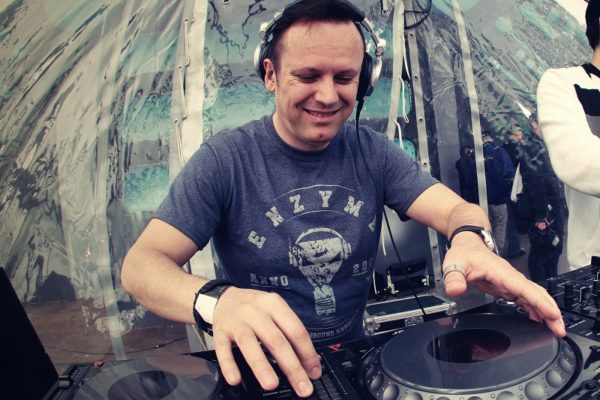The man, myth & legend… Ruffneck sheds an HONEST light on the modern age, his Freestyle ventures and 25 year legacy!
The man, the myth, the legend… Patrick Van Kerckhoven is all three of those. Infamously known as Hardcore revolutionist DJ Ruffneck, this long-standing DJ and producer is, without a doubt, one of the founding fathers of this widely-loved genre.
Holding over 25 years of experience in the ‘music biz,’ if anybody has an interesting story to tell, it’s him and here at Alive at Night, we had the honour to get inside the mind of this intriguing fella.
While we’re at it, we also got chatting to Ruffneck about a HUGE new development in his career; you heard it here first, he’s marking new territories amongst the Freestyle movement!
Ruffneck, Freestyle – are you ready?! Because we are!
– Yo Ruffneck, welcome to Alive at Night! First of all, how are things going for you this time of year?
I am doing fine! Although at the moment I’m REALLY busy with a lot of stuff, which I’ll talk about later on in this interview… 😉
– Let’s get down to business. So you are, without a doubt, one of Hardcore’s longest-standing pioneers. Care to share a little trip down memory lane and tell our readers more about your journey?
Haha, well, let me just start by saying that back when I began there was absolutely NO benchmark to compare yourself to, both musically and business-wise. Everything was just up in the air; there were no rules for making (underground) music, sound quality, levels, styles, contracts – you name it! We just did whatever we felt like doing, such as experimenting with sounds and parties – it was quite literally “playing it by ear.”
I began my career in 1989 and was heavily influenced by the pioneers who came before me. I was (and still am) a huge fan of the original ‘House’ sound. For me, I followed the house sound of Chicago next to the Detroit sound, which was a whole different sound. This was around ’86 and I listened to guys like JM Silk, Adonis, Kevin Saunderson, Lenny Dee, John Acquaviva, Ritchie Hawtin and Todd Terry, just to name a few.
There were no rules for making (underground) music…
At a certain point, I found a song by DB, “I Have A Dream.” I was so struck by the lyrics and the track itself that it made me decide to begin experimenting with music and contribute to my own dreams. I was 17 at the time and within two years I began my first label, 80 Aum Records; here I released some classics as well as signing one of the most famous underground tracks of all-time, “Dominator” by Human Resource, which was picked up and licensed to R&S Records later on.
After I quit the label and moved on with the Human Resource crew (who had started their own company), I began building my Ruffneck empire. After I’d used a million aliases, haha, I decided to stick to one name and eventually I became known as DJ Ruffneck.
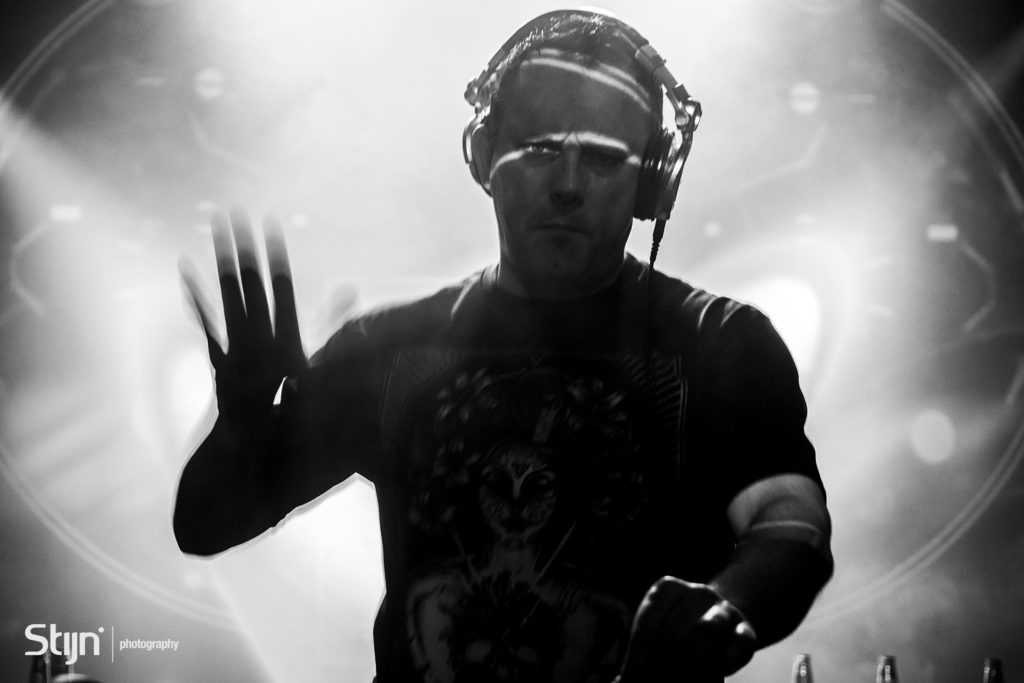
– What are the biggest comparisons you have to make between the old Hardcore scene and the modern one?
There are all sorts of differences in the Hardcore scene, however I will just keep things music-related in this interview. First of all, in all fairness I’d say that in older Hardcore I can find a little more variation. If you listen to it, you’ll notice that there literally is NO reference point whatsoever; there were tracks with lots of bass, but also many with hardly any bass. There were tracks with phat hoovers, versus no hoovers at all and uplifting, happy music, versus the angrier sound that I made.
What I’m trying to say is that there was no real guidance of what to do or how it had to sound – it was simply creating something cool and seeing what the effect on the floor was.
Nowadays, Hardcore followers tighter rules; kicks are simply dominating (if the kick isn’t right then, well, goodbye…) and percussion has been pushed to the background, which is logical as it will sound really harsh.
Back then, the “loudness war” was non-existent; this gave the producer much more freedom to experiment with all sorts of sounds, as we would simply turn up the gain on the mixer if the tune wasn’t as loud as the previous one. I find this a bit of a shame as it limits what you can actually do as a producer; you are stuck to a certain sound in order to achieve Level Pressure.
With that said, I want to point out that I am NOT judging either style – this is simply an observation of the music itself.
I PERSONALLY like lots of variety and don’t care whether or not a kick is really loud; I simply like to hear a great song that includes an array of diverse sounds and vibes. I’m bored out of my skull whenever I hear the same sorts of kicks and sounds for a few tunes in a row. On the other hand, the diversity made spinning quite a challenge as there was no rules regarding the sound quality or the track’s build-up – for instance, some tunes just immediately began with melody lines.
– Back in the days, there was no internet or way to promote your music digitally. How did you get your music to reach so many people?
Back in the days, people were actually going out of their way to find out the name of the amazing tune that they heard at a party. People were REALLY interested in the underground scene; records would appear in the shops and people would go and listen to them EVERY single week. It may sound strange, but even though music is more accessible nowadays, at the same time the market is over flooded with thousands of tunes every single week. Back in the days, the record companies made a pre-selection of which releases they wanted to invest money into; that didn’t prevent ‘lower quality’ records from appearing, but it made the supply of stuff a little easier to sift through.
If the record was cool and worked well on the dance-floor, it would be picked up by the stores and sold within their top 10 or 25. People would also share the latest hit with their crew, so a lot of advertisement came through the grapevine.
Nowadays, one has to be a DJ, producer, graphic designer, businessman, lawyer, IT specialist, marketing strategist and mixing and mastering engineer all at the same time!
– Coming into the new age, what were some of the biggest adjustments you had to make to ‘fit’ with the new market too?
Well, as I’d been growing alongside the scene, the adjustments always came gradually. The biggest adjustment obviously was the transition from vinyl to the digital age. Secondly, social media was also a big adjustment; you have to keep people interested and also have to constantly figure out what the rules are THIS week. What’s the new trend, what have the social media giants decided with the rules of reach and what posts are effective?
This aspect of the ‘new’ music industry is something I (and a lot of my colleagues) truly do NOT like. It simply distracts me from what I want to do, which is making music. Nowadays, one has to be a DJ, producer, graphic designer, businessman, lawyer, IT specialist, marketing strategist and mixing and mastering engineer all at the same time! Sometimes it blows my mind, but I guess I’ve adapted quite well, as I pretty much can do all of the above.
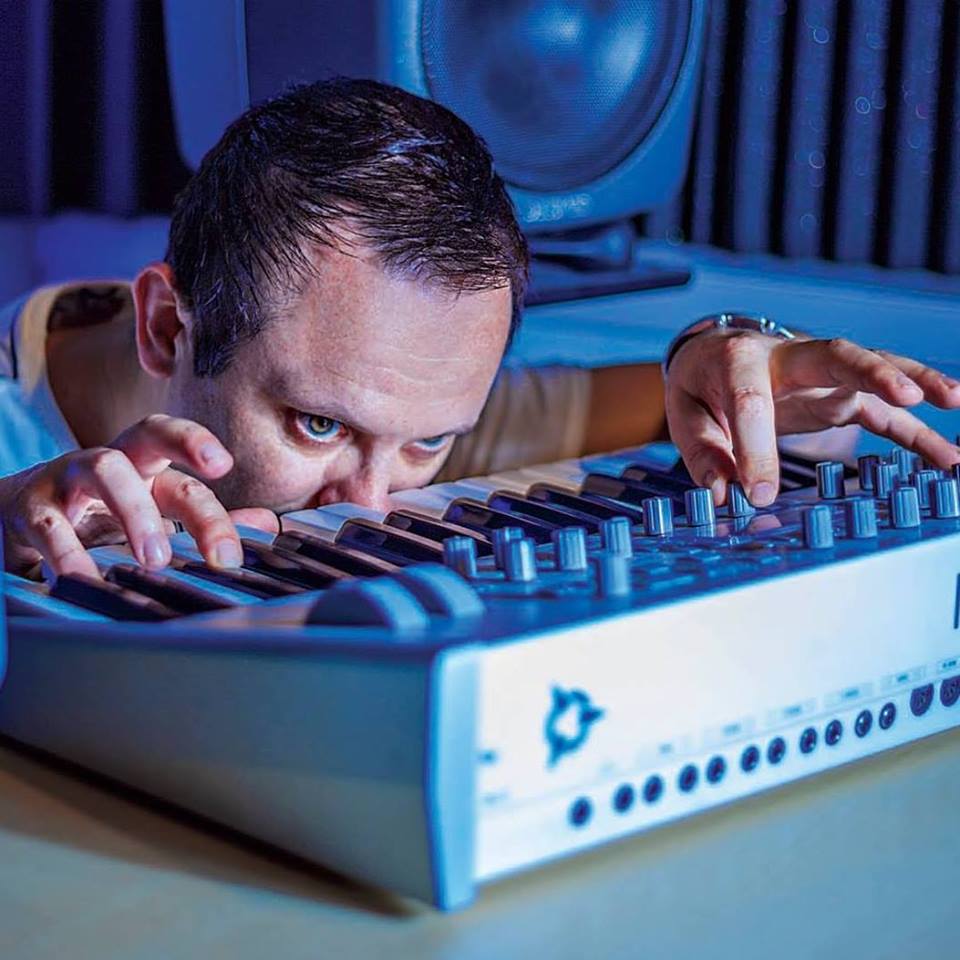
– Which other dudes from the early days are you still great friends with?
I still get along well with most of the guys, but from the top of my head in a split second I’d say that I’m still close with Marc Acardipane (PCP), DJ Rob, Leviathan, Darkraver, The Viper, Waxeazle/Headbanger, Dano, Scott Brown, DJ Panic, The Outside Agency, Max Monopoli (Stunned Guys), Rotterdam Terror Corps, Lucien Foort, Manu Le Malin and, of course Lenny Dee.
Actually, it’s quite a large bunch and I’m absolutely sure I forgot to mention a few guys, so I’m sorry in advance if I forgot, haha! There’s just WAY too many to mention.
– Can you tell us about your first ever gig?
Haha, oh gosh, my first gig… Yeah, I still remember it clearly! That gig was held in Ahoy in Rotterdam and I was performing as 80 Aum. We literally took ALL of the equipment we owned with us; the entire studio was built again on stage and everything was connected via midi. We tried to do things whilst a DAT machine was playing an underlying piece of music; I’m not quite sure how long it lasted but I do know that it was a complete MESS, haha!
My former partner and I were bangin away on the samplers, synthesisers and drum-computers to create that true ‘live’ feeling. However, in reality it was complete chaos, resulting in people dancing, but looking rather confused at the same time. 😛 All in all it was a great memory, but at the time I wanted to forget it as quickly as possible.
The feeling and freedom that this ‘style’ provides reminds me of the early Hardcore days where anything goes. This is what I absolutely LOVE about Freestyle and it makes so much sense for me to dive into it, both as a producer and DJ.
– So you’ve also had a new development in your career recently – care to tell our readers more about it?!
Music-wise, I’m actually very busy with a few projects. Besides my usual Hardcore gigs I’ve also taken quite an interest in Freestyle; I’m currently liaising with some organisations who are interested in some exclusive bookings within this style. Oh, and besides these bookings I’m also busy creating music to fit this concept. 😉
On top of that, I’ve been working on a brand-new album! It’s an electronic project where I’ve taken the freedom to create music with influences ranging from Electro to Techno, both old and new. There are no boundaries; I’ve been creating music that suits ME and that’s separate from all of the existing rules. I have no idea where it’ll lead me, but it’s something that’s given me a lot of energy and enthusiasm.
**Be sure to hit PLAY on this sick-ass Freestyle mix!**
– That’s awesome! Sounds like you have a lot going on at the moment… So, what made you decide to launch a new Freestyle act?
The feeling and freedom that this ‘style’ provides reminds me of the early Hardcore days where anything goes. This is what I absolutely LOVE about Freestyle and it makes so much sense for me to dive into it, both as a producer and DJ.
– As Freestyle is quite an ‘open’ movement, how does this style influence your creativity and personal freedom as an artist?
I truly need musical freedom and don’t like to be put in a single box and those guidelines also resonate with the Freestyle movement. This music will allow me to create a party atmosphere in a way I normally couldn’t do in Hardcore sets.
People expect me to play hard (which I love doing), but sometimes I feel the need to behave differently. As I mentioned, I love almost every genre of music, so it only makes sense that I utilise this within my sets.
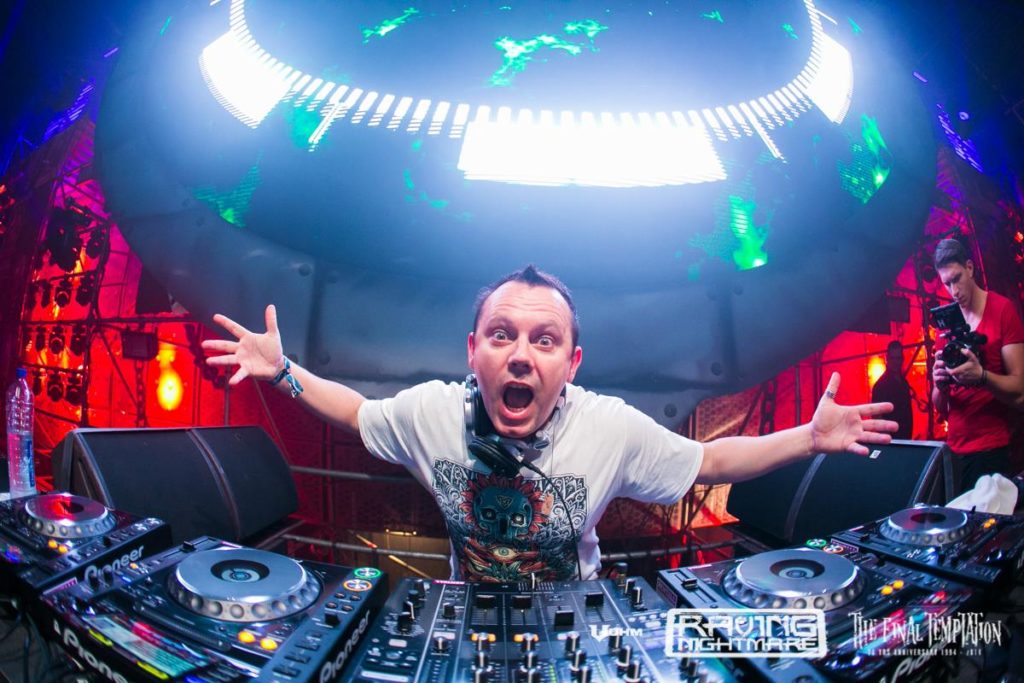
– Do you have plans to produce Freestyle-styled tracks?
I indeed have plans to produce Freestyle-styled tracks, yes ;). Again, freedom to produce a diverse range of music is refreshing, so I’m absolutely eager to dive into that!
– So this year you’re also celebrating your huge 25 years! How does it feel to have successfully sustained such a long and prosperous career as a musician?
To be honest, I haven’t been paying much attention to that at all, however if you are going into details it would be 25 years as Ruffneck. Me, Patrick van Kerckhoven started back in 1989 with my first label – making it technically almost 28 years! Wow, I really didn’t realise how long this has been going on for, haha!
I still LOVE spinning Early and Millennium sets and I don’t plan on stopping anytime soon. However, lately I’ve been thinking about doing some special shows; perhaps three hour sets or solo nights – I feel as though a one hour set just doesn’t cut it!
Anyway, to quote one of my all-time heroes Georgio Moroder, it’s ‘Ruffneck to eternity!’ I hope I can keep on doing this until my last breath and I’m most definitely going to try.
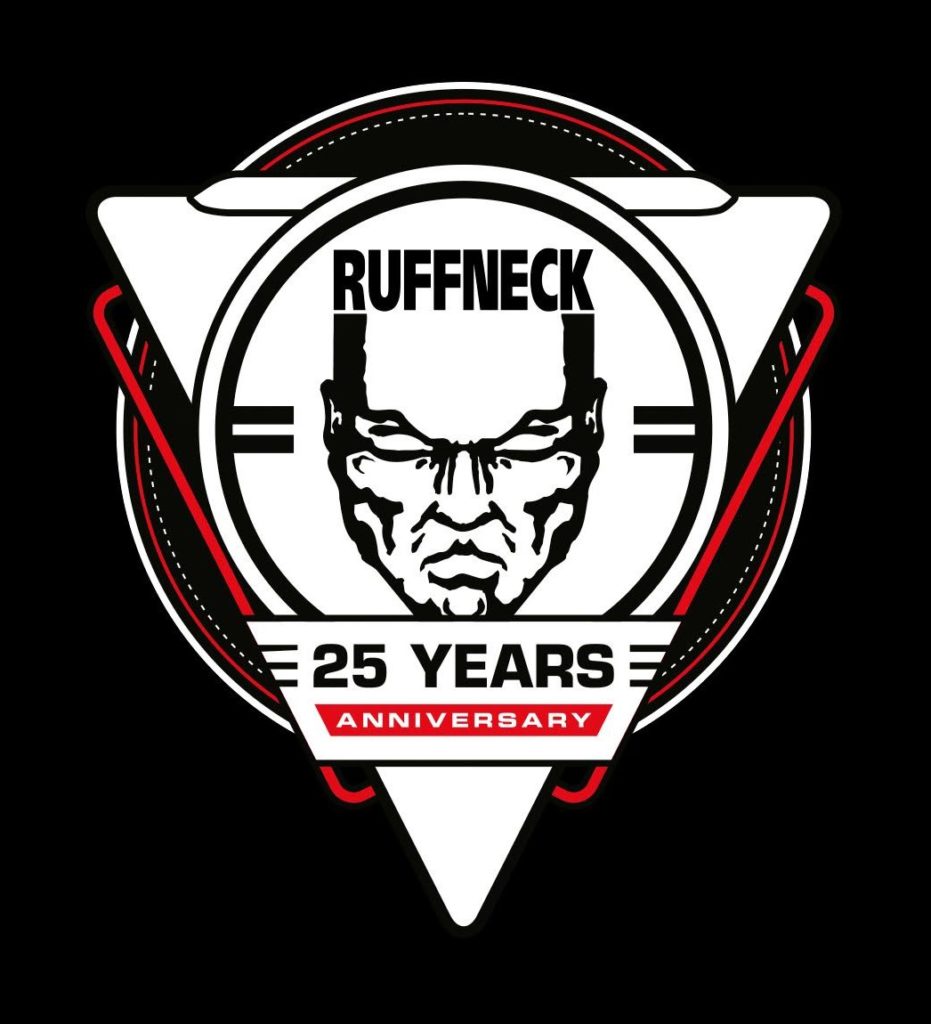
– What are your celebration plans?
I’m not much of a celebration dude, but ‘25 years of Ruffneck’ is worthy of celebration! In Autumn we will surprise some fans with a special product; we can’t reveal the content of this special product yet, but it’ll be prepared as an awesome collector’s item.
Besides the idea for extended Ruffneck sets, I also would love to begin performing LIVE. No events are planned at the moment, however we hope to tee up with an awesome promoter to bring this concept to life!
– As you’ll soon be performing all kinds of genres, what do you have to say to those who think that you’re neglecting your roots?
Well, that would be really strange, as my roots have always been performing and producing a variety of music – so if anything, this transition would be further strengthening my connection with my roots, rather than abandoning it. On the other hand, I’m a musician and in order to remain creative I must be able to move freely, not be bound by other’s expectations.
I am still me, still producing and spinning Hardcore, but also expanding and exploring again. If people don’t understand this, then they don’t understand the core and soul of Ruffneck. In the end, everyone has to walk his own path and this is mine for now… 😉
– Finally, what did Ruffneck eat for breakfast today?
Haters! They are the most loyal fans, so I take them in as much as possible, haha!
We’d like to take this moment to thank Ruffneck for this awesome interview and of course, for exclusively sharing the news about his Freestyle transition! We’re incredibly excited to catch one of his performances very soon and hope to hear some fresh new productions by him.
To stay up to date on Ruffneck, feel free to hit him up at the social links below.




 21 Jun 2017
21 Jun 2017  Posted by Cassi Catsaros
Posted by Cassi Catsaros
